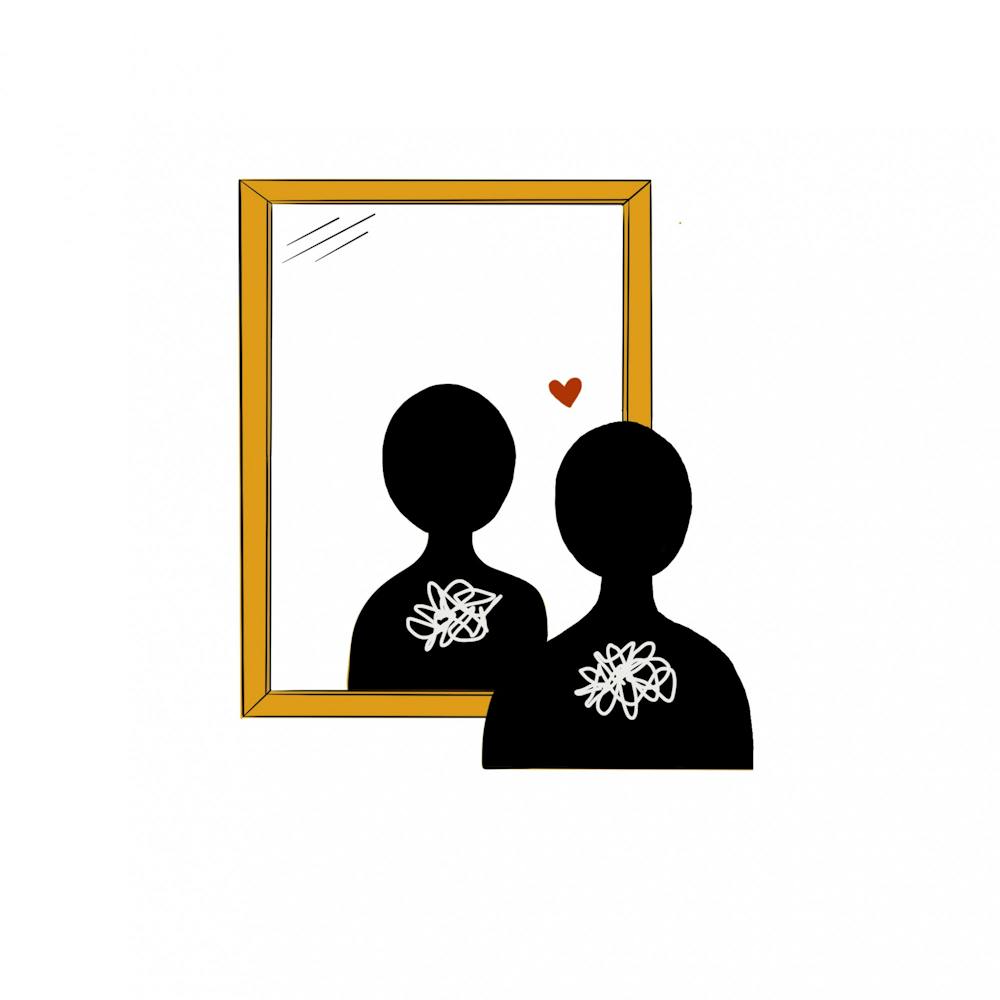Forgiveness isn’t something college students think about often, but a lack of forgiveness in your life can be a silent killer — especially if the person you need to forgive is yourself.
Sometimes we don’t even realize that we are harboring unforgiveness within ourselves, but recognizing it is an important step in the healing process.
Here are five things you (might) need to forgive yourself for:
FAILURE AND MISTAKES — While different, both of these entities hold tremendous weight in our minds. Failure often becomes synonymous with who we are instead of something we did. We forget that failure is normal because people don’t boast about it.
Failure is a natural process. Perfection is an illusion that we must put behind us, lest it cripple our authenticity and stunt our growth. In order to learn, we must fail. In order to mature, we must move past this failure.
Mistakes try to tell us who we are too. Whether they are recurring or random, it’s important to remember that you have the power to walk away and forgive yourself. They can make us feel stuck or defined, but they are nothing more than a lapse in judgment or clouded mindset.
You are bigger than your mistakes and more enduring than your failures.
ENDED RELATIONSHIPS — This is tricky because relationships involve someone besides yourself. No matter if the relationship is romantic or platonic, an ending will leave a scar.
Whether it be a breakup, a toxic friend group or a gradual growing apart, it is important to leave the baggage behind. Try to forgive the other person, but also forgive yourself so you can move forward.
You have to let go of the mental image you’ve created for your future, even though letting go provokes disappointment and disruption. Forgive yourself for creating unrealistic hopes, and forgive yourself for leaving these hopes behind.
You're not a bad person for moving on; you can't live your life for other people.
IMMATURITY AND THE PAST — How often do we cringe at our younger selves — the braces, acne, rudimentary fashion or primitive decision-making abilities? Can you look at a picture of yourself from junior high or hear an ex’s name without making a sound of disgust?
We wouldn’t have done those things if we had known better. As time goes on, we live and we learn. Tearing your past self down hurts your present self because you are the same — just further along in your journey.
Chronological snobbery is when you believe that people of past times were less intelligent because present times are more advanced and adept. Targeting or harboring unforgiveness against your past self — intentional or not — can fall into the fallacy of chronological snobbery.
You are doing your best with what you know, and it’s okay if the journey is rough.
EMOTIONS AND FEELINGS — Most of us ask others for forgiveness when we have outbursts of anger or sadness. It’s important to realize that emotions are not inherently bad. The “bad” part comes with how we process them or let them control our actions.
Feelings are byproducts of emotions, like jealousy, pride or self-loathing. When you feel something like bitterness, you need to forgive yourself for the emotion of anger in order to move forward and find peace. When you feel something like jealousy, you need to forgive yourself for the emotion of sadness in order to move forward and find contentment.
Feelings are real, but they aren’t always true. When you feel a “bad” emotion, try to process it in a different way instead of ignoring it until it radicalizes into a “bad” feeling.
You can’t control what you feel; you can only control what you do.
INSUFFICIENCY — You can’t do it all. We get discouraged and defensive when we realize that we are not good enough, smart enough, capable enough, popular enough, strong enough — enough to do what we think we ought.
It’s important to understand that you can’t do everything in the world that needs to be done. Yes, that seems obvious, but our minds get carried away by productivity culture and people-pleasing tendencies.
You can only do so much. Everyone has limits. If you don’t forgive yourself for these “disappointments,” you will carry residual guilt and continue to beat yourself down. Focus on what you can control, do your best with that and forgive yourself for the rest.
You are enough for what you are meant to do.
—
When you don’t forgive someone, the person who hurts most is you. You keep thinking about what they did wrong or the pain they caused you. You can’t see them the same as before. You keep waiting for them to fix the problem or give you a metaphorical band-aid for the wound.
Not forgiving others can look like bitterness, blocking, canceling or getting revenge. Whether it eats a person up or drives them to action, unforgiveness is not a stagnant condition. It can’t simply exist inside of someone; it has to do something.
Maybe you’ve made a mistake recently. Maybe you have regrets from high school, from last semester, from last week or from earlier today. Maybe you wish you behaved differently or that you hadn’t made that decision. Maybe you’re blaming yourself for something that isn’t your fault.
Conflict needs resolution and questions need answers. Likewise, unforgiveness needs forgiveness — no matter what it’s caused by.
Forgiveness for yourself allows you to walk away with peace of mind. It gives you perspective, healing and growth. It alleviates burdens and fosters maturity. It is control and peace in a world that is uncontrollable and certainly not peaceful.
Remember to forgive yourself, too.
The opinions expressed in columns and letters represent the views and opinions of their individual authors.
These opinions do not necessarily reflect the Auburn University student body, faculty, administration or Board of Trustees.
Do you like this story? The Plainsman doesn't accept money from tuition or student fees, and we don't charge a subscription fee. But you can donate to support The Plainsman.

Sami Grace Donnelly, senior in English literature, began writing for the Plainsman in the fall of 2021. She has served as a columnist, writer abroad, Opinion Editor, managing editor and is now Editor-in-Chief of the Plainsman.





